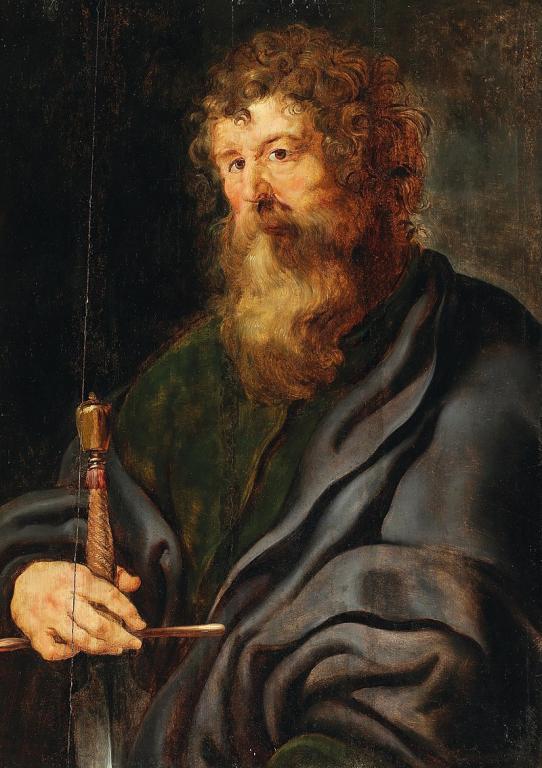Last year, I wrote an essay on Paul and worship for a book called God and Wonder. I wanted to do something creative for this, not your typical academic essay. So, I decided (with fear and trembling) to try out historical fiction, offering a snapshot of Paul’s life of worship. I appreciate Cascade/Wipf&Stock granting permission for me to post this on my blog (a short excerpt). Thanks to editors Dr. Jeffrey Barbeau and Dr. Emily McGowin for their work on the book and helping me edit and shape my essay (“The Doxological Apostle” pp. 119-132, excerpt from 120-123.)
 A Devoted Life: A Short Story from the World of Paul
A Devoted Life: A Short Story from the World of Paul
Aquila was intently reading a letter when he was startled by a loud knock on the door. He instinctively looked over at the door, as if he could see through it; obviously he couldn’t. Before he could ask, Who is it?, the answer came from the other side, “It’s Alexander! Get off your butt and unlock the door!” Aquila furled his brow and looked over at Priscilla, who smiled back at him, as if to say, have fun. Aquila sighed and went to unlock the door.
Alexander burst in, “Aquila, my friend, what are you doing inside on a nice day like this? Stop reading, you’re always reading. You need to have fun sometimes. Here I brought you some figs.” He plopped a satchel in Aquila’s hands while trying to steal a glance at what Aquila was reading. “Oh hi, Priscilla.”
“Aren’t you going to offer Alexander something to drink, Aquila?” Priscilla asked as she began to tidy up the room. “Yes, of course,” Aquila said, in a dutiful tone. “Alexander, would you like some water? Alexander?”
Alexander was nosy, which had him wandering around the room looking at the knickknacks and decorations; he’d been here many times, but he was a curious person by nature. At this moment it wasn’t a knickknack that captured his attention, but rather a person in the other room, kneeling on the ground and talking loudly.
“Who’s that . . . and what is he doing?”
Aquila, realizing that his house guest was visible, attempted a quick explanation: “That’s our friend Paul. He’s staying with us for a while. . . . He’s loud.”
“Who is he talking to?” Alexander asked, moving closer to Paul in search of another person. Aquila explained, “He’s praying; he does that a lot. Why are you here again?” (“Aquila, that’s rude!” Priscilla mouthed to him.)
Alexander ignored the question at first. “Where is his god?” Alexander was looking for a statue to signal cult devotion. Paul seemed like he was just . . . talking to himself.
“We do not have images,” Priscilla explained. “We pray anytime, anywhere, God hears us from heaven,” she added, while pointing and looking upwards. “Oh,” Alexander grunted, clearly unimpressed, “He’s one of you. I gotta say, I never would have believed it if I hadn’t seen it with my own eyes. Praying without an image seems like praying to an empty room.” “Oh look, it’s dinner time,” Aquila interjected. “I’ll see you tomorrow at the guild meeting.” Aquila was moving uncomfortably close to Alexander, as if to shoo him away.
“Aquila, friend, I wanted to see if you were going to the Artemis festival.” “It’s not my thing,” Aquila added abruptly.
“Don’t be a sourpuss. I’m not asking you to make a sacrifice. It’s a party. There are dancers. They decorated the temple just for today.” Alexander’s tone changed from warm invitation to irritated insistence: “You’re doing nothing; just come for a bit.”
Aquila was obviously about to make an unconvincing excuse, when a voice blurted out: “I’ll go.” Everyone’s heads turned to Paul, who was walking into the room. Alexander and Aquila both looked at each other with surprise.
“I like this guy,” Alexander said. Before Priscilla and Aquila could say good bye, or anything else, Paul grabbed his shawl by the door and they were off. They turned onto a main road moving towards the noise and bustle of the day’s commotion.
Alexander began to make polite conversation: “Is this your first time to our great city of Ephesus? It is wonderful, no?”
“I am enjoying it very much,” Paul said with a warm smile.
“Have you visited our glorious Artemis temple before? People come from all over the world to pay respect to our great divinity. Her temple is twice the size of the Parthenon! Your god lives in Israel?”
Paul wanted to correct Alexander without being impolite: “Our God doesn’t live in a temple. He is Spirit and does not need a home, but you might say heaven and earth belong to him.”
With a little chuckle, Alexander said, “How can you prove the glory and power of an invisible God with no palace or image? A sucker like you I could pay with invisible money! I’m kidding, my friend.”
Paul wasn’t offended. He had this conversation with people . . . more often than he could count.
“Alexander, how about a riddle?” Paul glanced over at him, and he winked back.
“A certain god creates a city and settles a people there. He gives them farms and a flowing river. But they forget about him and cease to worship him. He comes down to earth from the sky and appears to them as a giant. He demands worship and respect. They fear him and hide. He puts them in chains and forces them to worship him. Is this god great?”
“He is strong, but terrible.” Alexander shuddered at this thought. Paul went on.
“A certain deity was very wealthy but became cursed with a disease and was dying. He called out to a healing god, ‘Save me and I will give you half of my wealth.’ The healing god said, ‘Give me all your wealth and I will restore you.’ The deity agreed. The healing god gave him a magic seed to eat. When he swallowed it, the seed reversed the disease, but turned the deity into an ordinary mortal, an old man who was frail. Alexander, is this god great?”
“He is clever, but greedy. How many more stories do you have? They’re terrible!”
“Just one more,” Paul assured him.
“There was a certain village who worshipped a certain god. Let’s call this god, ‘Agape.’ A rival being, Skotia, came to the village and told the people Agape was going to betray them. The people panicked, and Skotia offered them a deal. His protection and patronage if they pledged allegiance to him alone. They signed a pact to honor Skotia above all. But soon they realized they were duped and wanted out of this deal. Skotia said, “To break the pact, you must sacrifice one human to me.” The people argued among themselves, “Who should be handed over?” No one wanted to die, so they all agreed they would pick the least important, the poorest person. There were several destitute villagers who, in their desperation, resorted to theft and murder to gain enough money to prove they were worthy. The village quickly devolved into violent chaos.”
“Agape saw this commotion from heaven, had pity on the people, and executed a plan with a heavy heart. He had only one son, but his son could transform into another being, even a human. So, he sent his son, Soter, to the village as a poor slave, penniless in fact. He went to the town square and said, ‘I will die.’ And so they killed him to appease Skotia.”
“Alexander,” Paul asked, “is this god great?”
Alexander knew this third example was meant to be the correct an swer, but he couldn’t exactly explain why. “Paul, why would Agape do this for such an evil people?”
“Love,” Paul said, matter of factly. There was a long silence.
“Where do you come up with such strange stories?” Alexander said, feeling a mixture of amusement, confusion, and a hint of wonder. “The gods are like emperors and princes. We serve them, they don’t . . .” Alexander glanced over at Paul, but he wasn’t there. Alexander had kept walking and talking, but clearly Paul had stopped. Alexander glanced back, Paul was about three meters behind him resting on his knees, arms raised to the sky. “Oi,” Alexander yelled, “what’re you doing? Are you hurt?”
“I’m praying.”
“Why?”
“Because God is great! His love is amazing!”
Alexander muttered to himself, “I like this guy.” Then he yelled to Paul, “Get up, I smell street vendor grub. Buy me some food, and I’ll listen to more of your odd stories.”
“Deal. My next story involves a Jewish girl named Miriam. She was a nobody from nowhere in particular, but one day a heavenly messenger appeared to her with good news for her and for the world. . . .” As they continued walking, the great Artemis temple came into view, but Alexander didn’t even notice—he was hanging on Paul’s every word.
If you want to read more of my work on Paul and worship, check out my whole essay “The Doxological Apostle” in God and Wonder.













